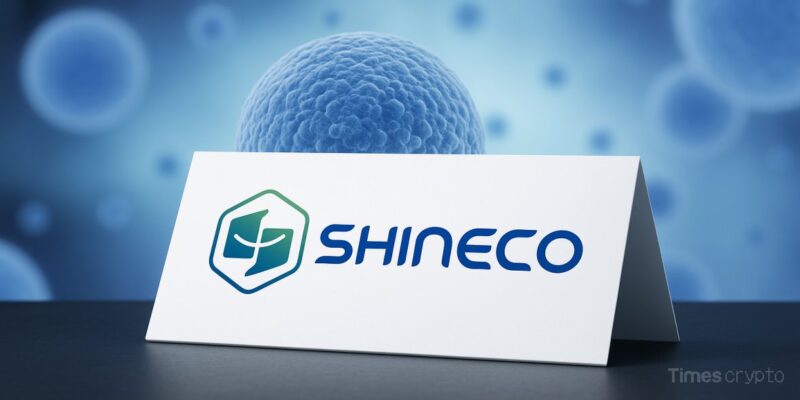
Key Takeaways
- Blockchain-Biotech Network: Shineco Inc. (SISI) stock rocketed up to 50% to close at 37% up on a $210 million volume spike after announcing its blockchain-biotech move.
- The biotech company launched the first cell asset tokenization platform on Ethereum, creating “Cell Infusion Redemption Tokens”.
- Xi’an Dong’ao Health’s cryogenic storage infrastructure, vital for asset backing, has been secured through a strategic 51% acquisition.
Table of Contents
Tokenizing Biology: The New Frontier of RWAs
In an innovative and curious combination of petri dishes and blockchains, Shineco Inc. (ticker: SISI) unveiled the world’s first cell asset tokenization platform, a Blockchain-Biotech Network, and investors went nuts. The NASDAQ-listed biotech company’s stock jumped 50% on Wednesday when the announcement was made that it would be tokenizing induced pluripotent stem cells (iPSCs) on the Ethereum mainnet, and creating a digital token from a biological asset.
And it’s not hypothetical. Shineco acquired a 51% stake in Xi’an Dongao Biotechnology Co., Ltd. (in short, Xi’an Dong’ao Health), a cryogenic storage company, to ensure that actual cells back every digital token, though the exact access to real cells is not yet clear. The tokens, under the ERC1400/ERC20 standards, act as a redemption certificate of a real cell therapy, creating liquidity for a historically illiquid asset.
"Bio-cell technology is a core driving force of the 'big health' industry, but the industry currently faces challenges such as low global circulation efficiency, difficulty in cross-regional collaboration, and high user service thresholds. We established the Biological Cell Digital Division precisely to break through these bottlenecks through a cell asset chain model. We believe this will not only enable people to more easily access cell technology services but also promote a significant increase in the global market share of Shineco's biological cell products as well as create long-term value for our shareholders. We view this endeavor as a core element of our corporate growth plan, and it represents a strategic investment in the future of the industry." - Jennifer Zhan, CEO of Shineco.Blockchain-Biotech Network: Why This Isn’t Just Hype
- For patients: Offers affordable access to cutting-edge cell therapies through fractional ownership.
- For researchers: Facilitate global collaboration and funding opportunities via tokenized asset sales.
- For the crypto space: It would be a milestone example of real-world asset (RWA) tokenization with life-saving possibilities..
However, there may be some challenges to overcome: the need for regulatory approval across jurisdictions, maintaining biological integrity, and ensuring the prevention of speculative bubbles over medical need.
When Cells Go On-Chain
Shineco’s action exemplifies a larger trend of blockchain entering traditional industries. If this goes well, it could democratize biotech investing and facilitate even more medical innovations and funding, while accessing a new Blockchain-Biotech Network.
Final Thought: With this new innovative sector and tokenized assets on a Blockchain-Biotech Network, are we tokenizing life itself?
FAQs
How are physical cells linked to tokens?
Each token corresponds to cryogenically stored cells in Shineco’s facilities, audited for compliance.
Can tokens be redeemed for treatment?
Yes, holders can redeem tokens for cell infusion therapies at partnered clinics.
What’s the regulatory status?
Tokens are ERC-1400 security tokens, designed to comply with financial and healthcare regulations.
For more blockchain innovation stories, read: Vietnam Debuts NDAChain: A National Blockchain for 100M Citizens


